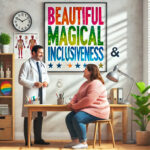When FBT fails – research call to parents
When FBT fails – research call to parents

My Kid is Back - Empowering Parents to Beat Anorexia Nervosa - by June Alexander in collaboration with Daniel Le Grange.
For many good reasons, Family-Based Treatment is the frontline option for children and adolescents who are diagnosed with anorexia nervosa. But this treatment does not work for everyone. The good news is that researchers are working to find out why, so that they can further improve the treatment outcomes. And the researchers need your help. If your family has engaged in FBT for your child, this is a chance to share your experience to help others. Importantly, researchers wish to hear from families for whom the treatment outcome has been successful and also from those for whom the outcome has not been successful. This will help them understand why the treatment works better for some families and than others.
The qualitative research study Family-Based Treatment for Anorexia Study[1] is looking at variables that contribute to why families may drop out of FBT prematurely or have less-than-optimal results upon completion of treatment. While FBT has a fantastic track-record as far as eating disorder treatment modalities go, and a generally low drop-out rate in clinical trials, roughly 10-15% of participants in clinical trials tend to have poor results (this percentage may differ in a naturalistic or community-based study). University of Iowa researcher , Joanna Wiese, in addition to speaking to families who have been part of the FBT success rate, wants to interview parents and caregivers who have dropped out of FBT, or discontinued it due to less-than-optimal results, about their experiences and their perceived reasons that FBT did not work well for their families.
Joanna says: “My hope is that this qualitative study will generate themes (via grounded theory) that can be further explored through quantitative survey-based studies, and that this information will eventually result in alterations to FBT protocols for different populations and improved treatment outcomes.”
Joanna is completing a doctoral dissertation to investigate these particular cases and improve future outcomes.
The study seeks 25 parents who have participated in family-based treatment for a child or adolescent with anorexia nervosa.
Who can participate?
• Parents (biological, adoptive, or step) who have participated in family based treatment for a child with anorexia nervosa at some
point in the past
• Child was between ages 10 and 18 at the time of family-based treatment
• Are not currently in family-based treatment
What is the process?
• Participants will contact the researcher
• The researcher will email information about the study and a demographic questionnaire
• Participants will review the information about the study and, if they consent to participate, will complete and mail the demographic
questionnaire to the researcher
• Some participants will be invited to participate in a 60-90 minute interview which may occur in person, via telephone, or via web chat
This study is being conducted by Joanna Wiese and Megan Foley Nicpon, PhD. If you are interested in participating, please contact Joanna Wiese at
563-676-2500 or joanna-wiese@uiowa.edu. If you are an eating disorder practitioner and have eligible clients interested in participating, please
forward them this contact information.





